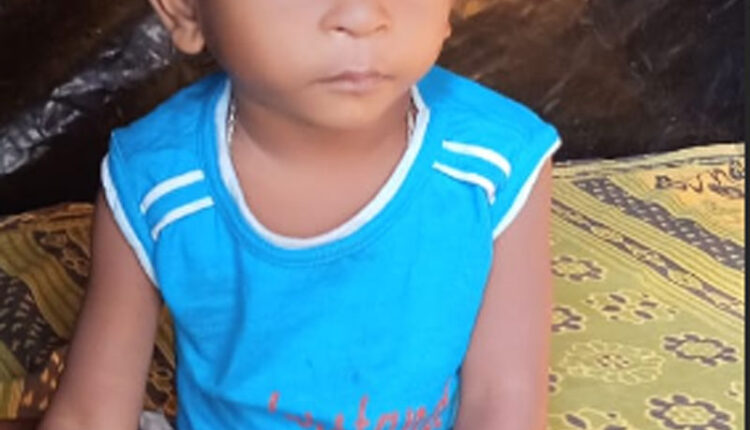Combating Malnourishment amongst Children: Transformative Impact of Nand Ghar’s Healthcare Interventions in Odisha
Odisha: On this World Health Day, amidst global reflections on healthcare access and empowerment, Nand Ghar emerges as a shining example of transformative change. Nand Ghar, a flagship women and child welfare project under the Anil Agarwal Foundation, the social impact arm of Vedanta, is weaving a brighter future for countless citizens across India. This project consists of a network of modern Anganwadis that goes beyond traditional childcare, offering a comprehensive approach to well-being. By addressing early childhood education,nutrition, and health needs alongside skill development and economic empowerment of women, Project Nand Ghar empowers communities and fosters a healthier tomorrow.
At the heart of Nand Ghar’s mission lies a steadfast commitment to improv healthcare outcomes and increase its access for local communities across India, through various interventions.
One such initiative is specialised camps organised at Nand Ghar under the ‘Village Health and Nutrition Day’ (VHND) across India every month. At one such camp, Nitanjali Pradhani, a local resident, brought her son, Harpit for a regular check-up. Harpit is disabled and during the check-up, a Nand Ghar staff member found out that he was severely malnourished, and his weight was quite low compared to the average for his age. Given his disability, it was observed that his malnourishment was a major concern for his growth. After a discussion between the Anganwadi worker at Nand Ghar and his family, he was referred to the Nutrition Rehabilitation Centre (NRC) in Bhawanipatna, where he was givena comprehensive treatmentfor 15 days with the help of the ‘Rashtriya Bal Suraksha Karyakram’. With the care received at the NRC, Harpit’s weight increased from 5.6 kgs to 8.1 kgs. Now in good health, Harpit is continuing his early education at Nand Ghar where he also receives continuous counselling and care from the field staff,to maintain his health and well-being.
Similarly, in Hirima Mundapada village of Jharsuguda, Odisha, Kuntala Munda, the wife of a daily wage labourer brought her son, Chintu to Nand Ghar after seeing a dip in his health and eating patterns. There, during the health check-up, it was found that he was malnourished. Subsequently, the Anganwadi Didis at the Nand Ghar counselled the family regarding the urgency of his treatment and advised that he be admitted to the nearby Nutrition Rehabilitation Centre. After his treatment for a fortnight, his health saw a considerable improvement, and he returned home. Since then, with the help of the Project Nand Ghar, a nutrition garden has also been developed at Kuntala’s house, helping the family consume fresh vegetables and fruits from their own backyard. After the counselling provided by Anganwadi Didis, Kuntala’s family also regularly participates in Nutrition Awareness Sessions at Nand Ghar to understand how they can adopt a more nutritious diet as part of their lifestyle. The Anganwadi Didis also visit Kuntala’s house every month to keep a check on Chintu’s health.
Today, thousands of suchAnganwadi Didis, with Nand Ghar’s support and their tireless efforts, are transforming lives across India, fostering holistic health and nurturing communities. As one Anganwadi Didi aptly puts it, ” Our commitment is simple – to stand by every child and every family, in their pursuit of a healthier and happier life.We may be the guiding hands, but it’s the resilience of these families that truly fuels our mission.”
The impact of Nand Ghar extends far beyond such individual success stories. Through the Project, AAF has positively impacted more than more than 2,20,000 children aged 0-6 years, in addition to 1,00,000pregnant and lactating women, a reach of around 58,00,000 community health program beneficiaries, and more than 1,70,000 women through its skilling program. The integrated healthcare model of Nand Ghar hasresulted in building healthier communities. Each cluster of 25-30 Nand Ghars are equipped with Mobile Medical Units (MMUs) or a telemedicine kit or conducting regular health camps, staffed with doctors and paramedics, to provide essential primary healthcare services. These services not only offer immediate medical aid but also facilitate referrals for emergency or critical cases to the nearest Community Health Centre or hospital.
As AAF continues its journey towards empowering communities, transforming lives, and facilitating sustainable growth, Nand Ghar remains at the forefront, championing the cause of healthcare access among communities.

